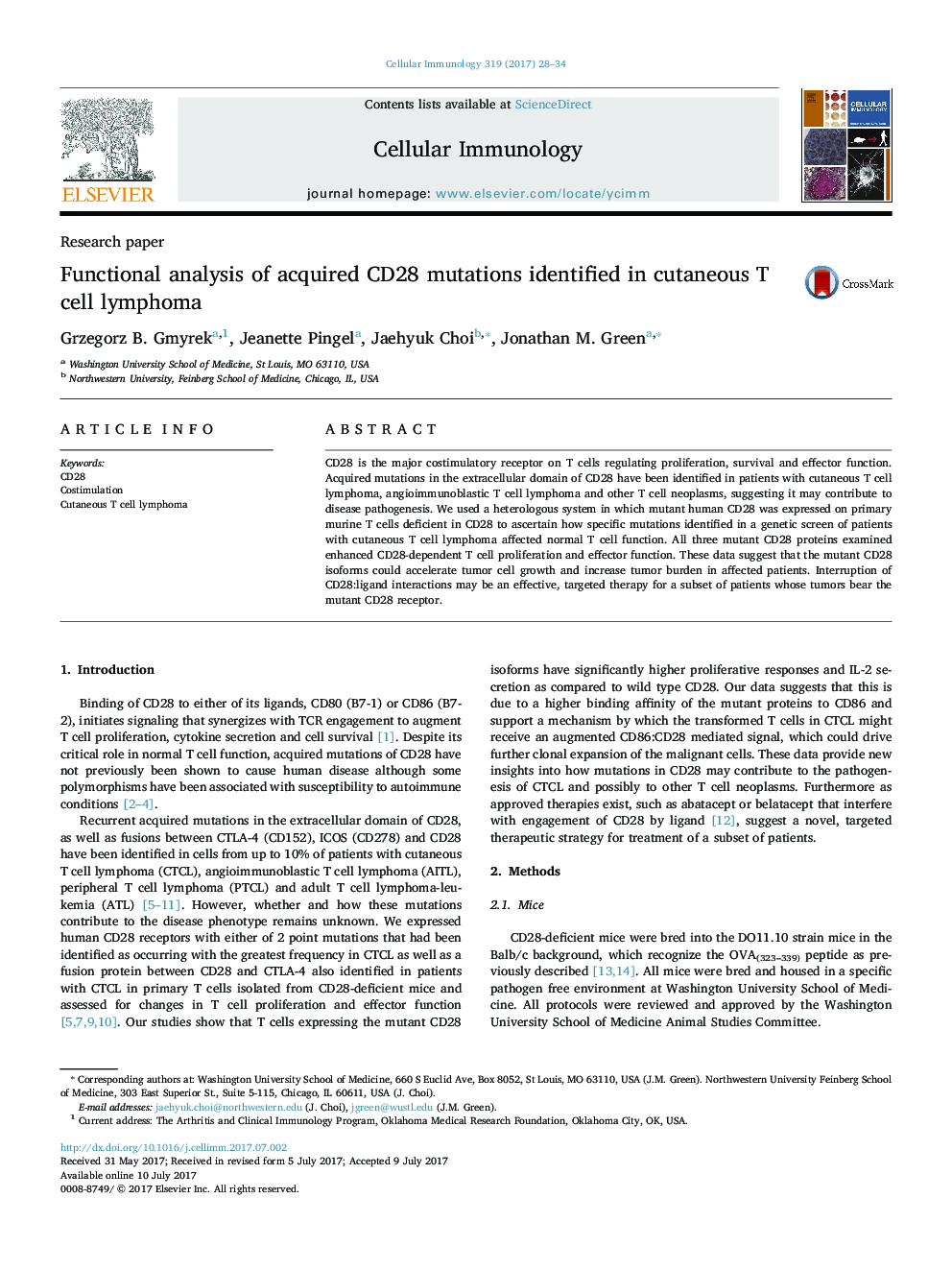| Article ID | Journal | Published Year | Pages | File Type |
|---|---|---|---|---|
| 5530619 | Cellular Immunology | 2017 | 7 Pages |
â¢CD28 mutations identified in CTCL increase binding to the ligands for CD28.â¢These mutations result in increased ligand dependent growth and IL-2 secretion.â¢Blocking ligand binding may be a novel treatment for some patients with CTCL.
CD28 is the major costimulatory receptor on T cells regulating proliferation, survival and effector function. Acquired mutations in the extracellular domain of CD28 have been identified in patients with cutaneous T cell lymphoma, angioimmunoblastic T cell lymphoma and other T cell neoplasms, suggesting it may contribute to disease pathogenesis. We used a heterologous system in which mutant human CD28 was expressed on primary murine T cells deficient in CD28 to ascertain how specific mutations identified in a genetic screen of patients with cutaneous T cell lymphoma affected normal T cell function. All three mutant CD28 proteins examined enhanced CD28-dependent T cell proliferation and effector function. These data suggest that the mutant CD28 isoforms could accelerate tumor cell growth and increase tumor burden in affected patients. Interruption of CD28:ligand interactions may be an effective, targeted therapy for a subset of patients whose tumors bear the mutant CD28 receptor.
